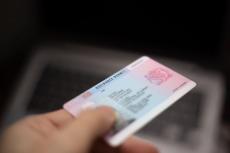Blog • Published on:August 29, 2025 | Updated on:September 18, 2025 • 7 Min
Complete List of Saudi Arabia Visa-free and Visa on Arrival Countries in 2025
In 2025, Saudi citizens have access to 125 destinations without the need for a traditional visa. This includes 57 countries offering visa-free entry, 26 providing visas on arrival, and 42 accepting eVisas. This expanded access reflects Saudi Arabia's growing global engagement and the increasing strength of its passport.
Notably, Saudi citizens can travel visa-free to countries such as Egypt, Malaysia, and South Korea. Additionally, destinations like India and Australia offer eVisas, while countries like the Maldives and Nepal provide visas on arrival.
In this guide we will delve into the specifics of each category, providing detailed information on visa-free countries, visa on arrival destinations, eVisa requirements, and countries where traditional visas are necessary.
Quick Overview: Saudi Passport Travel Access in 2025
Saudi Arabia Visa-Free Countries List 2025
Saudi citizens can travel to 57 countries completely visa-free in 2025. This means no prior application, no visa on arrival, no eVisa, just a valid passport.
Here's a categorized table that makes scanning and search indexing easy:
Conditions for visa-free travel
While no visa is required, countries may impose the following:
- Return or onward ticket
- Proof of accommodation
- Sufficient financial means
- Passport validity of 6+ months
Visa on Arrival Countries for Saudi Arabian Citizens
As of 2025, Saudi passport holders can obtain a visa on arrival in 26 countries. This means you don't need to apply in advance, just show up, fill out a form, pay the fee (if any), and you're good to go. Entry durations typically range from 7 to 90 days, depending on the country.
Here's a table organized by region to make scanning easier:
Special Permit Requirements
Most visa on arrival countries require the following:
- Passport valid for at least 6 months
- Proof of onward or return ticket
- Sufficient funds for the stay
- Hotel booking or local address
Some countries may also take biometrics on arrival or conduct short interviews at the border. Always check the local consulate or airport immigration website for the most recent rules before traveling.
Electronic Visa (eVisa) Required Destinations
Saudi citizens need to apply for an Electronic Visa (eVisa) before traveling to 42 countries in 2025. These applications are typically completed online, without visiting an embassy. Processing times usually range from 24 hours to 7 business days, depending on the country.
Processing Times and Validity
Most eVisas are valid for 30 to 90 days and are issued for single or multiple entries, depending on your travel purpose and nationality. Some countries offer expedited processing for an additional fee.
Pro tip: Always apply using the official government portal or a trusted agency to avoid delays and scams.
Countries Requiring Traditional Visa for Saudi Citizens
Despite broader mobility, Saudi citizens still need to apply in advance for a traditional visa to visit many major countries. This includes most of the European Union, North America, and parts of Latin America and East Asia.
Traditional visas often require a pre-scheduled appointment at an embassy or consulate, submission of supporting documents (e.g., bank statements, employment letters), and occasionally in-person interviews.
In total, 79 countries still request a conventional visa from Saudi nationals before entry.
Embassy Application Requirements
To obtain a traditional visa, applicants must generally prepare:
- Passport valid for at least 6 months
- Proof of accommodation and return travel
- Travel insurance (for Schengen and others)
- Bank statements or financial guarantees
- Letter of employment or invitation (where applicable)
Processing time varies from 5 to 20 business days, depending on the embassy, time of year, and application completeness.
Advance Visa Planning
Many embassies recommend applying at least 4 to 6 weeks before your intended travel date, especially during high-demand periods like summer or end-of-year holidays.
For countries like the United States, Canada, or Schengen members, appointment slots may book out months in advance, so early planning is critical.
Regional Travel Agreements
How do regional travel agreements affect Saudi citizens?
In 2025, regional travel agreements continue to play a major role in simplifying mobility for Saudi nationals, especially within the Gulf Cooperation Council (GCC) and select Arab League member states.
Unlike standard visa policies, these regional frameworks often provide mutual entry privileges, longer stay allowances, and faster border clearance, sometimes without stamping a passport.
Middle East Travel Privileges
Saudi citizens enjoy some of the most flexible travel terms in the Middle East, particularly in:
While most of these are visa-free, entry policies may vary based on political and security developments.
Arab League Member States Access
Arab League countries generally offer easier visa processes for Saudi citizens, especially in North Africa and the Levant. This includes countries such as:
- Egypt
- Morocco
- Tunisia
- Algeria
- Lebanon
- Sudan
Some of these countries still require visas, but processing is typically faster, with relaxed entry criteria for Saudi passport holders due to shared diplomatic and cultural ties.
Note: Each Arab League member may enforce its own bilateral policies, so always verify visa status before traveling.
Special Administrative Regions Access
Special Administrative Regions (SARs) such as Hong Kong and Macau operate under separate immigration systems, even though they are technically part of China. This means Saudi passport holders must comply with SAR-specific rules, which differ from those for mainland China.
Hong Kong and Macau Entry Requirements
Be careful: Entry into Hong Kong or Macau does not give you access to other parts of China. You must apply separately for a mainland Chinese visa if you plan to visit Beijing, Shanghai, or other regions.
Travel Restrictions and Considerations
While access has expanded globally, some temporary rules and entry conditions still apply for Saudi passport holders. These can vary by season, political situation, or international event.
Even in visa-free or eVisa countries, entry is never guaranteed, immigration officers have discretion to deny entry based on insufficient documentation or security protocols.
Seasonal Visa Regulations
Some destinations impose temporary visa restrictions or tighter scrutiny during peak seasons or major events. For instance:
Tip: Always double-check embassy notices or airline alerts when traveling between June and September or during December holidays.
Entry Requirements During Peak Seasons
Many countries apply unwritten entry filters for visitors from the GCC during high-travel seasons. You may be asked for:
- Confirmed hotel reservation
- Return flight itinerary
- Proof of travel insurance
- Sufficient funds (bank statement or credit card)
These documents may not be required at the visa application stage, but immigration officials often ask for them on arrival.
What Holding a Saudi Passport Really Means in 2025
Holding a Saudi passport in 2025 represents a growing diplomatic presence, stronger bilateral ties, and a clear strategic focus on mobility.
Here’s what that looks like in practice:
- Easier Business Travel: Saudi citizens can now attend conferences, scout property, or conduct short-term business in economic hubs like Singapore, South Korea, and the UAE without a visa.
- Streamlined Religious Journeys: Whether heading to Pakistan, Indonesia, or Iran for religious purposes, access is increasingly simplified, especially during structured group travel seasons.
- Regional Integration: The Gulf’s push for ID-based travel and shared databases means smoother cross-border entry for citizens moving between Bahrain, Kuwait, Oman, and the UAE.
- Digital-First Applications: Countries offering eVisas such as India, Australia, and Colombia have embraced fast, paperless processes that align with modern traveller expectations.
- Security & Screening: Despite broader access, security remains tight in countries like the U.S. and the UK, as well as the Schengen Zone. Visa approvals in these regions depend heavily on financial documentation, travel history, and purpose of visit.
In short, the Saudi passport is no longer a travel limitation, it’s a gateway to opportunity, business expansion, and personal exploration.
FAQs on Saudi Arabia Passport & Travel Access in 2025
1. Can Saudi citizens visit Europe without a visa?
No. Most European countries, especially Schengen states like France, Germany, and Spain still require a traditional visa for Saudi citizens.
2. Is travel to the United States possible with a Saudi passport in 2025?
Yes, but a traditional visa is mandatory. The application involves an in-person interview at the U.S. embassy or consulate and requires advance planning.
3. What’s the difference between eVisa and Visa on Arrival for Saudis?
An eVisa must be applied for online and approved before travel. A visa on arrival is obtained at the destination airport with minimal pre-travel paperwork.
4. Which Arab countries offer visa-free access to Saudi nationals?
Many do, including Egypt, Jordan, Lebanon, UAE, Bahrain, Qatar, Oman, and Morocco. These are based on bilateral and regional agreements.
5. Can Saudi citizens travel with just their national ID within the GCC?
Yes, in most cases. Citizens can use their national ID for entry into Bahrain, Kuwait, Oman, Qatar, and the UAE, but always confirm current entry rules before traveling.
References
Ministry of Foreign Affairs, Kingdom of Saudi Arabia. (2025). Travel and Visa Guidelines. Retrieved from https://www.mofa.gov.sa
United Nations World Tourism Organization. (2024). Visa Openness Report. Retrieved from https://www.unwto.org
International Air Transport Association (IATA). (2025). Travel Information Manual (TIM). Retrieved from https://www.iatatravelcentre.com
Government of the United Arab Emirates. (2025). GCC Citizens Entry Regulations. Retrieved from https://u.ae/en/information-and-services/visa-and-emirates-id/gcc-citizens
European Union External Action. (2025). Visa Policy for Third Countries. Retrieved from https://www.eeas.europa.eu
Written By

Alice Emmanuel
Alice Emmanuel is an expert in residency and citizenship by investment, specializing in government compliance and program optimization. With over 8 years of experience, she has guided high-net-worth individuals through acquiring global mobility and new citizenships, particularly in Europe, the Caribbean, and the Middle East. Alice's in-depth knowledge of Middle Eastern residency programs makes her a trusted advisor for investors seeking security and diversification in the region.
Related Articles









Recently Published









Book a free consultation


